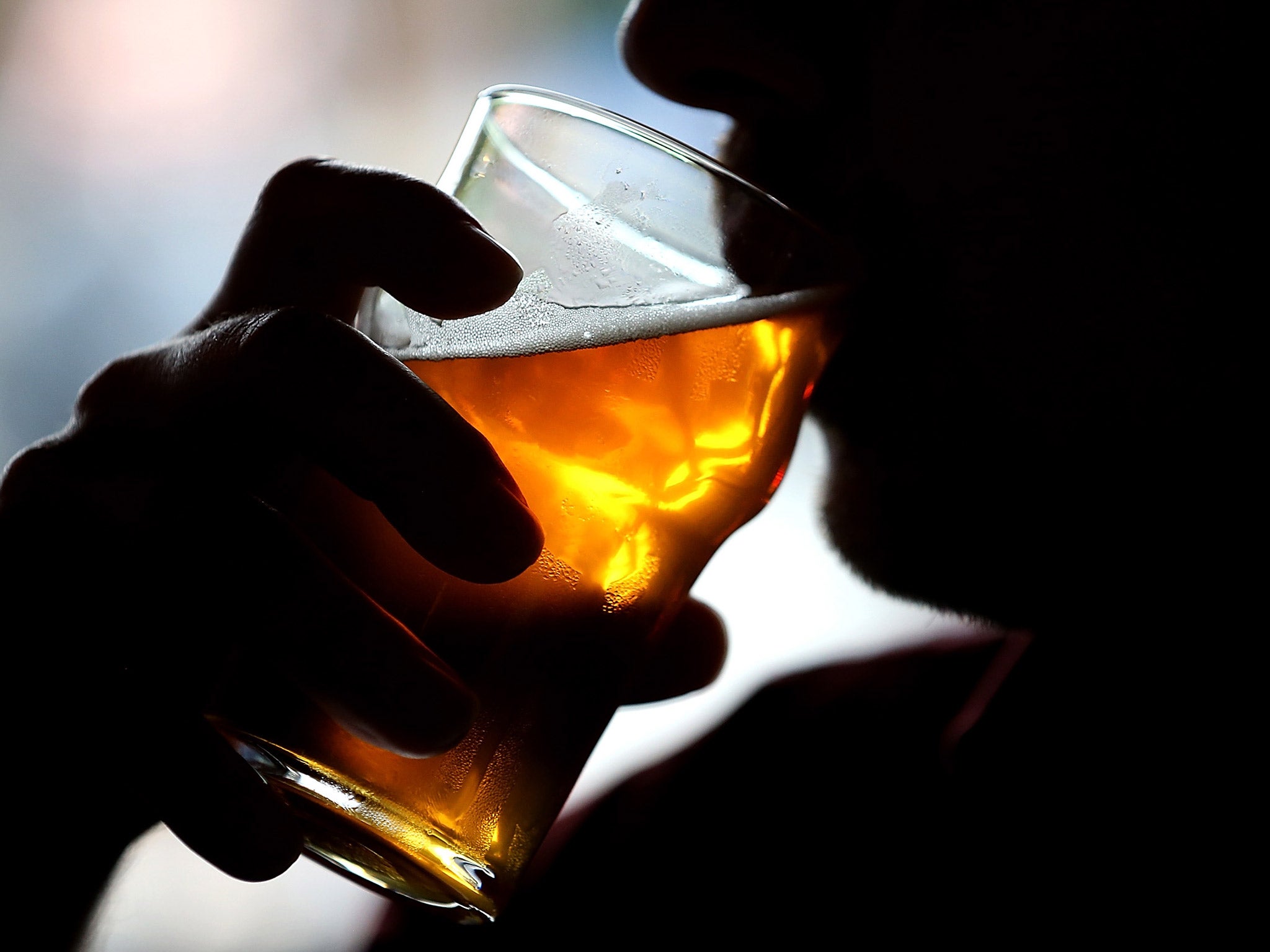‘Urgent action’ needed to halt alcohol abuse in armed forces
Between 6 and 7 per cent of troops who have seen combat suffer from PTSD

Your support helps us to tell the story
From reproductive rights to climate change to Big Tech, The Independent is on the ground when the story is developing. Whether it's investigating the financials of Elon Musk's pro-Trump PAC or producing our latest documentary, 'The A Word', which shines a light on the American women fighting for reproductive rights, we know how important it is to parse out the facts from the messaging.
At such a critical moment in US history, we need reporters on the ground. Your donation allows us to keep sending journalists to speak to both sides of the story.
The Independent is trusted by Americans across the entire political spectrum. And unlike many other quality news outlets, we choose not to lock Americans out of our reporting and analysis with paywalls. We believe quality journalism should be available to everyone, paid for by those who can afford it.
Your support makes all the difference.Dangerous levels of alcohol consumption are “the norm” in the armed forces and the link between drinking and higher rates of violence among veterans must be investigated, MPs have warned.
In a review of the long-term health impact of military service, the House of Commons Defence Committee said that the Ministry of Defence must do more to understand “the links between deployment, alcohol misuse and violent behaviour, especially domestic violence”.
Research has found that alcohol misuse is higher in the military than in civilian populations. “Hazardous levels of alcohol consumption are the norm in the armed forces, regardless of service or gender. Urgent action is needed to reduce the harm caused by the abuse of alcohol to armed forces personnel and their families,” the committee said, in a report published today.
MPs added that “too many members of the armed forces appear to believe that alcohol is integral to group cohesion or that alcohol is an appropriate way of coping with a return from a military deployment”.
Rates of violent offending among serving and former forces personnel are higher than in the general population. Studies by the King’s College Military Health Research (KCMHR) unit found that men who had fought in Iraq and Afghanistan were 53 per cent more likely than non-combatant colleagues to commit a violent offence, and that post-traumatic stress disorder and alcohol misuse were also major risk factors.
Between 6 and 7 per cent of troops who have seen combat suffer from PTSD – roughly double the rate in the general population. Rates of violent offending among male armed forces personnel are 11 per cent, compared with 8.7 per cent in society as a whole.
Professor Simon Wessely, co-director of the KCMHR, and president of the Royal College of Psychiatrists, told the committee that rates of domestic violence among current and ex-military personnel were also likely to be higher than the average.
Although each military service runs alcohol awareness campaigns, MPs said they were “concerned” that there had been “no noticeable impact on the level of excessive drinking and binge drinking in the armed forces”.
A study conducted earlier this year by KCMHR concluded that hazardous levels of alcohol consumption were normal in the armed forces, findings the committee said were “very worrying”.
An MoD spokesperson said: “This Government has invested around £7.2 million to improve mental health services available and is taking action to reduce alcohol misuse in the Armed Forces. We welcome the Committee’s detailed report.”
Join our commenting forum
Join thought-provoking conversations, follow other Independent readers and see their replies
Comments